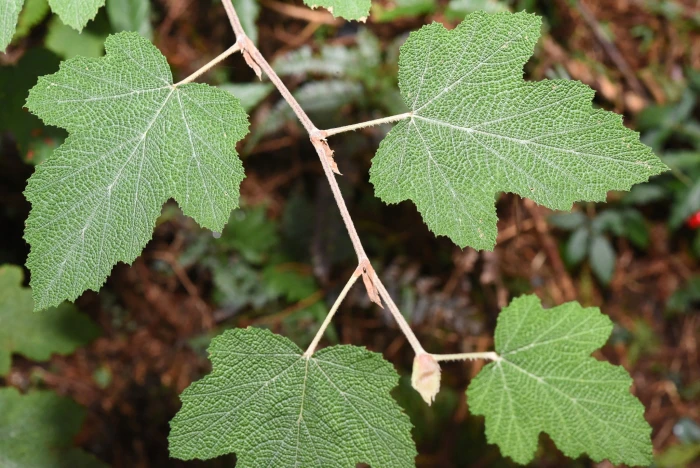Formosan Raspberry
(Rubus formosensis)
Formosan Raspberry (Rubus formosensis)
/
/

潘立傑
CC BY 4.0
Image By:
潘立傑
Recorded By:
Copyright:
CC BY 4.0
Copyright Notice:
Photo by: 潘立傑 | License Type: CC BY 4.0 | License URL: http://creativecommons.org/licenses/by/4.0/ | Rights Holder: 潘立傑 | Publisher: iNaturalist | Date Created: 2016-01-22T12:29:24-08:00 |

























Estimated Native Range
Climate Requirements for Franklin Square, New York
| This Plant | Your Site | Plant Suitability for Your Location | ||
|---|---|---|---|---|
| • Precipitation | 49" - 174" | 43" | Aquatic | Aquatic |
| • High Temp. | 53°F - 92°F | 84°F | Your summer temperatures are normal for this plant. | Excellent |
| • Low Temp. | 25°F - 61°F | 24°F | Your winter temperatures may be too cold for this plant | Too cold |
This plant should grow well at your location with about N inches per year (Y minutes per month) of irrigation.
Summary
Rubus formosensis, commonly known as Formosan raspberry or Formosan bramble, is a perennial shrub native to the broad-leaved forests and forest margins of southeastern China, including Guangdong and Guangxi provinces, as well as Taiwan. It is adapted to a range of elevations and often found in areas where it can avoid competition with more aggressive flora. Typically, it can reach up to 7 feet in height and exhibits a restrained climbing or scrambling habit. The Formosan raspberry is characterized by its attractive, glossy evergreen leaves and its thornless stems, which make it a user-friendly choice for gardeners.
This plant is appreciated for its ornamental value in gardens, where it can be used as an informal hedge or a naturalistic border. It produces small, white flowers that are followed by edible red raspberries, although the fruit is not as large or as flavorful as those of its cultivated relatives. The Formosan raspberry requires moderate watering, well-drained soil, and thrives in full sun to partial shade. While it is not commonly available from commercial suppliers, it can be propagated from cuttings or seeds. Gardeners should be aware that, like many Rubus species, it can spread via underground runners and may require management to keep it within bounds.CC BY-SA 4.0
This plant is appreciated for its ornamental value in gardens, where it can be used as an informal hedge or a naturalistic border. It produces small, white flowers that are followed by edible red raspberries, although the fruit is not as large or as flavorful as those of its cultivated relatives. The Formosan raspberry requires moderate watering, well-drained soil, and thrives in full sun to partial shade. While it is not commonly available from commercial suppliers, it can be propagated from cuttings or seeds. Gardeners should be aware that, like many Rubus species, it can spread via underground runners and may require management to keep it within bounds.CC BY-SA 4.0
Plant Description
- Plant Type: Shrub, Vine
- Height: 4-6 feet
- Width: 4-6 feet
- Growth Rate: Rapid
- Flower Color: White
- Flowering Season: Spring, Summer
- Leaf Retention: Evergreen, Semi-deciduous
Growth Requirements
- Sun: Full Sun
- Water: Medium
- Drainage: Medium
Common Uses
Border Plant, Edible*Disclaimer: Easyscape's listed plant edibility is for informational use. Always verify the safety and proper identification of any plant before consumption., Low Maintenance
Natural Habitat
Broad-leaved forests and forest margins
Other Names
Common Names: Taiwan Raspberry, Formosa Raspberry
Scientific Names: Rubus formosensis, Rubus formosanus, Rubus formosanus, Rubus moluccanus var. formosensis, Rubus nantoensis, Rubus randaiensis, Rubus rubribracteatus, Rubus rugosissimus, Rubus rugosus
GBIF Accepted Name: Rubus formosensis